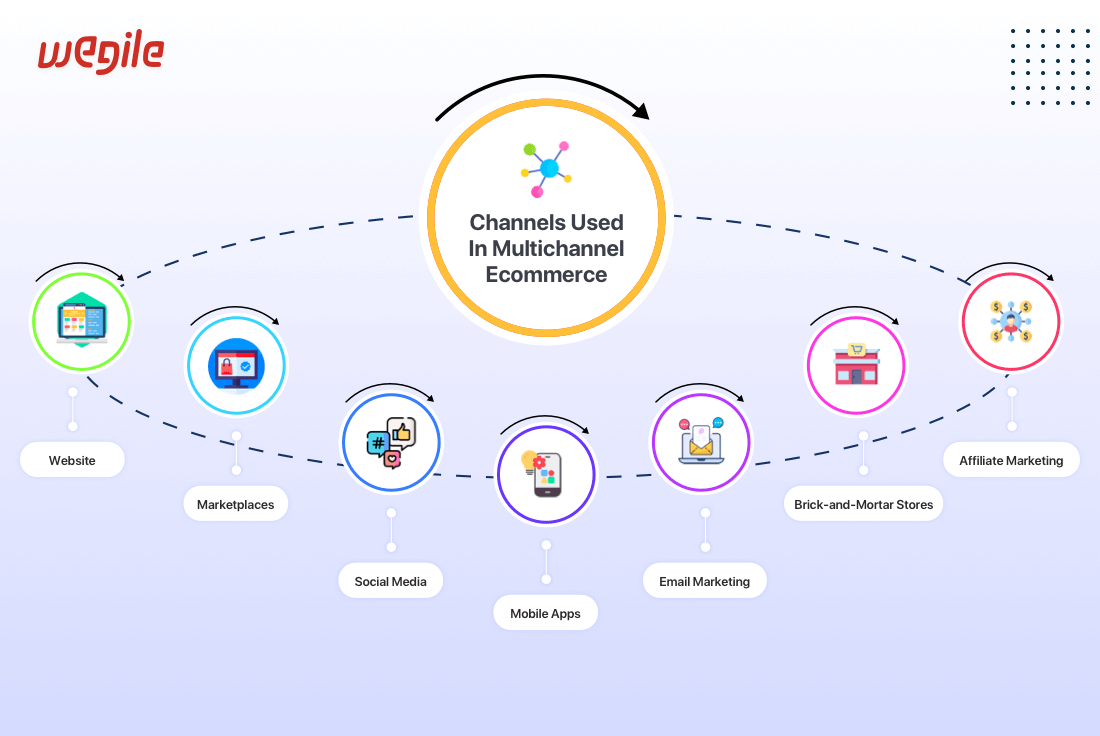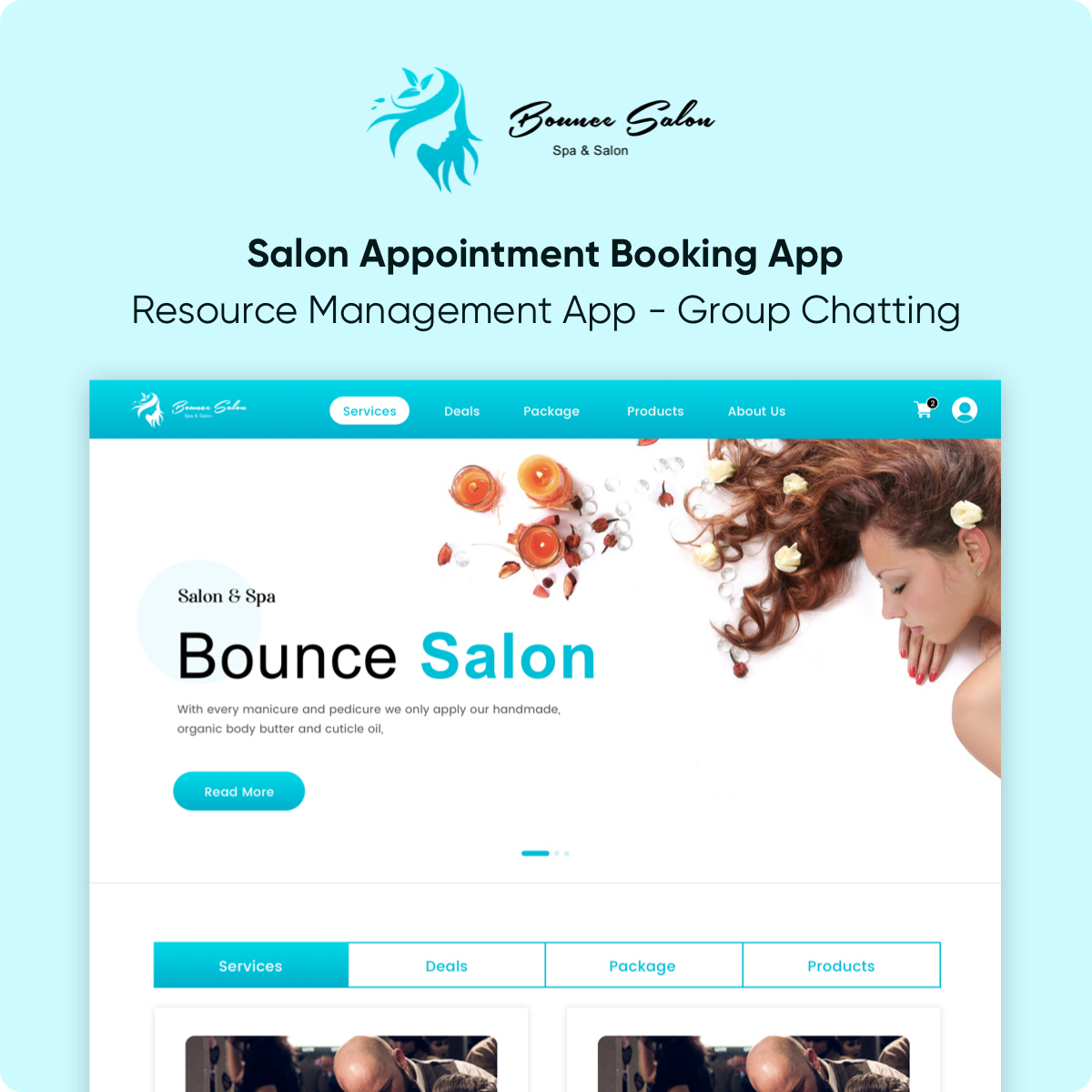In the rapidly evolving realm of eCommerce, transitioning from traditional, single-channel operations to Multichannel eCommerce has become an absolute necessity.
The digital marketplace is reshaping consumer behavior, and businesses often face numerous challenges when they're operating online.
To effectively compete in the virtual landscape and maintain a strong digital presence, adaptation is key.
Multichannel eCommerce is the answer to this challenge. It involves extending your reach across various online and offline channels, allowing you to meet customers where they are.
Whether it's on social media, trusted marketplaces, mobile apps, or brick-and-mortar stores, Multichannel eCommerce ensures your business is present where your customers prefer to shop.
According to Statista, multichannel online retailers generated around 575.62 billion US dollars in e-commerce sales in the United States in 2023.
This strategy is all about providing a seamless, consistent experience across every channel, enhancing customer engagement and satisfaction.
This blog will explore the numerous advantages, implementation strategies, and real-world examples to equip you with the tools needed to excel in this dynamic landscape.
Multichannel eCommerce is a strategy that involves selling products or services through multiple online and offline channels, effectively reaching customers where they shop.
It's an approach that recognizes the diverse ways consumers prefer to engage with brands and make purchases.
Instead of focusing solely on a single website or marketplace, businesses utilizing this strategy leverage various channels like their website, social media, marketplaces (Amazon, eBay), mobile apps, physical stores, and more.
This approach enables businesses to cast a wider net, tapping into diverse customer bases.
It's not just about selling through various channels; it's about providing a consistent and seamless experience across all those channels.
The key is to meet customers where they are, whether it's on their preferred social media platform, a marketplace they trust, or the comfort of their own home.
In the dynamic world of modern retail and eCommerce, the terms "Omni Channel" and "Multichannel" are frequently used. However, they represent distinct approaches to reaching and engaging customers across various touchpoints. People look out for points of difference among these two approaches. Let's explore the key differences between these two strategies and understand when each might be most effective for your business.
Multichannel eCommerce extends your business's reach to a diverse audience. By embracing various channels like your website, marketplaces, social media, mobile apps, and physical stores, you effectively diversify your customer base. This diversity in channels increases the visibility of your brand, making it accessible to a wide range of potential customers.
Multichannel eCommerce provides multiple avenues for revenue generation. It caters to the distinct preferences and shopping habits of your customers. Some may favor well-known online marketplaces, while others might prefer the familiarity of your website. This diversification creates opportunities for cross-selling and upselling, contributing to higher sales volumes.
Multichannel strategies allow you to engage with customers on their preferred platforms, be it through social media, marketplaces, mobile apps, or your website. This high level of convenience and accessibility fosters deeper customer engagement. When customers can interact with your brand through their preferred platform, it's more likely to result in enhanced customer loyalty and satisfaction.
Relying solely on a single channel can be risky. Algorithm changes, policy updates, or unexpected disruptions can significantly impact your business. Multichannel eCommerce diversifies the risk by providing alternative platforms for revenue generation. If one channel experiences difficulties, your business can continue to operate through others, reducing vulnerability to channel-specific issues.
Multichannel eCommerce yields a treasure trove of data on customer behavior, preferences, and buying patterns across various platforms. This data becomes invaluable for your business, offering insights that can guide your marketing strategies, product development, and overall decision-making. It empowers you to better understand your customers and tailor your approach to their specific needs.
In the fiercely competitive eCommerce landscape, adopting a Multichannel strategy can set your business apart. Consumers value the flexibility and convenience it offers. Providing a consistent shopping experience across different platforms can earn your brand a reputation for customer-centricity, becoming a significant selling point.
Maintaining a consistent brand image and message across all channels is a hallmark of Multichannel eCommerce. This consistency builds trust and credibility with customers. They know what to expect from your brand, regardless of where they encounter it. Such trust is invaluable for retaining existing customers and attracting new ones who are drawn to a reliable and reputable brand

Your website is not just a virtual storefront; it's your digital headquarters. It's the anchor of your Multichannel strategy, where you have full control over branding, product presentation, and customer experience. Investing in a well-designed, user-friendly, and mobile-responsive website is crucial. With proper search engine optimization (SEO), you can attract organic traffic and convert visitors into customers. Your website is where you can offer a highly personalized shopping experience, implement e-commerce tools, and gather valuable data on customer behavior. You can check our blog on how to build an eCommerce website if you want to learn how to build your own eCommerce website from scratch.
Online marketplaces such as Amazon, eBay, and Etsy are online shopping giants with enormous customer bases. They offer a ready-made platform to showcase your products to a vast audience. Listing your products on these platforms can significantly boost your sales. Leveraging their infrastructure and customer trust can save you the effort and resources required to build an independent online store from scratch.
Social media platforms, including Facebook, Instagram, and Pinterest, have evolved into more than just social networks. They are powerful e-commerce channels in their own right. Utilize e-commerce features like 'Shop Now' buttons and 'Product Tags' to create a seamless shopping experience within these platforms. Social media advertising can help you engage with your target audience, promote your products, and drive traffic to your website or marketplace listings.
With the proliferation of smartphones, having a mobile app can be a game-changer. Mobile apps offer direct access to your customers, enhancing their shopping experience. Many businesses partner with a top mobile app development company to create tailored app solutions. A well-designed app can provide a more convenient and personalized shopping experience, leading to increased customer loyalty and retention. Push notifications can be used to alert users about special promotions and new arrivals, keeping your brand top-of-mind. This collaborative approach ensures that the app aligns with the business's specific goals and customer needs, offering a highly effective channel for engagement.
Email remains a reliable and effective channel for marketing and sales. It offers a direct line of communication with your customers. Implement email marketing campaigns to send personalized product recommendations, exclusive offers, and updates about your brand. Building a segmented email list allows you to tailor your messages to different customer groups, increasing the relevance of your communications.
If you have physical stores, integrating them into your Multichannel strategy is a wise move. Consider options such as buy online, pick up in-store or return items in-store. This bridge between the online and offline shopping experience can enhance customer convenience and satisfaction. It also supports a consistent brand image, whether customers engage with your business in person or online.
Partnering with other businesses or influencers in your industry can expand your reach. Affiliate marketing is a performance-based strategy where affiliates promote your products to their audiences. When a sale is made through their referral, they earn a commission. This approach can introduce your brand to new customers through trusted recommendations. Collaborating with affiliates who align with your brand values can foster long-term relationships and grow your customer base.
Nike's Multichannel strategy is a prime example of how a globally recognized brand seamlessly integrates its online presence with physical stores. Customers have the flexibility to shop via Nike's website or mobile app, where they receive personalized product recommendations and exclusive offers. Simultaneously, Nike's physical stores provide an immersive shopping experience, where customers can try on products and engage with the brand directly. This comprehensive approach ensures that customers can engage with Nike on their terms, whether it's through digital channels or in-store experiences.
Amazon, a pioneer in eCommerce, offers a prime illustration of a Multichannel giant. While its online marketplace is a household name, Amazon has expanded its reach by incorporating physical stores such as Whole Foods and Amazon Go. By maintaining a consistent brand identity and diverse shopping experiences, Amazon has set a benchmark for Multichannel success in the digital age. Customers can seamlessly transition from online to in-store shopping, reflecting the essence of Multichannel eCommerce.
Walmart's Multichannel strategy leverages its vast online presence, in-store shopping options, and a suite of fulfillment services. This approach includes in-store pickup, same-day delivery, and the introduction of subscription services like Walmart+. Walmart prioritizes the seamless transition between online and offline shopping, enhancing the overall customer experience. Customers can choose their preferred shopping method, making Walmart a leader in customer convenience.
Sephora, a cosmetics and beauty giant, excels in Multichannel eCommerce by providing a comprehensive shopping experience. Customers can access a personalized shopping history, product recommendations, and loyalty program benefits through the Sephora mobile app. Simultaneously, Sephora's physical stores offer in-person consultations and makeovers. By offering diverse channels for customer engagement and purchase, Sephora has created a cohesive brand experience that caters to a broad customer base.
Target's Multichannel approach combines an extensive online presence with physical stores. It offers a range of fulfillment options, including same-day delivery and curbside pickup. The convenience of transitioning between online and in-store shopping enhances the customer experience. This flexibility empowers customers to shop how and when they prefer, demonstrating Target's commitment to customer-centricity.
Apple's Multichannel approach integrates its online store, mobile app, and a network of iconic Apple Stores. Customers can explore and purchase Apple products seamlessly through these channels. Whether customers prefer browsing the latest technology online or receiving personalized assistance at a physical store, Apple provides a consistent and unparalleled brand experience.
Under Armour's Multichannel strategy combines its eCommerce platform with physical stores and a mobile app. Customers can access personalized fitness and workout content, fostering a deeper connection with the brand. This comprehensive approach enhances the overall shopping experience, allowing customers to engage with Under Armour on multiple levels.
As the eCommerce landscape continues to evolve, embracing adaptability and a customer-centric approach becomes your pathway to thriving and growing. Through the integration of multiple channels, you're not merely expanding your reach; you're also providing customers with choices, convenience, and consistency. Whether you're a budding entrepreneur or a seasoned business owner, Multichannel eCommerce unlocks opportunities to engage a broader, more connected customer base. In this ever-evolving eCommerce world, staying responsive to customer needs and preferences is the key to lasting success.


 Browse Our Services
Browse Our Services
